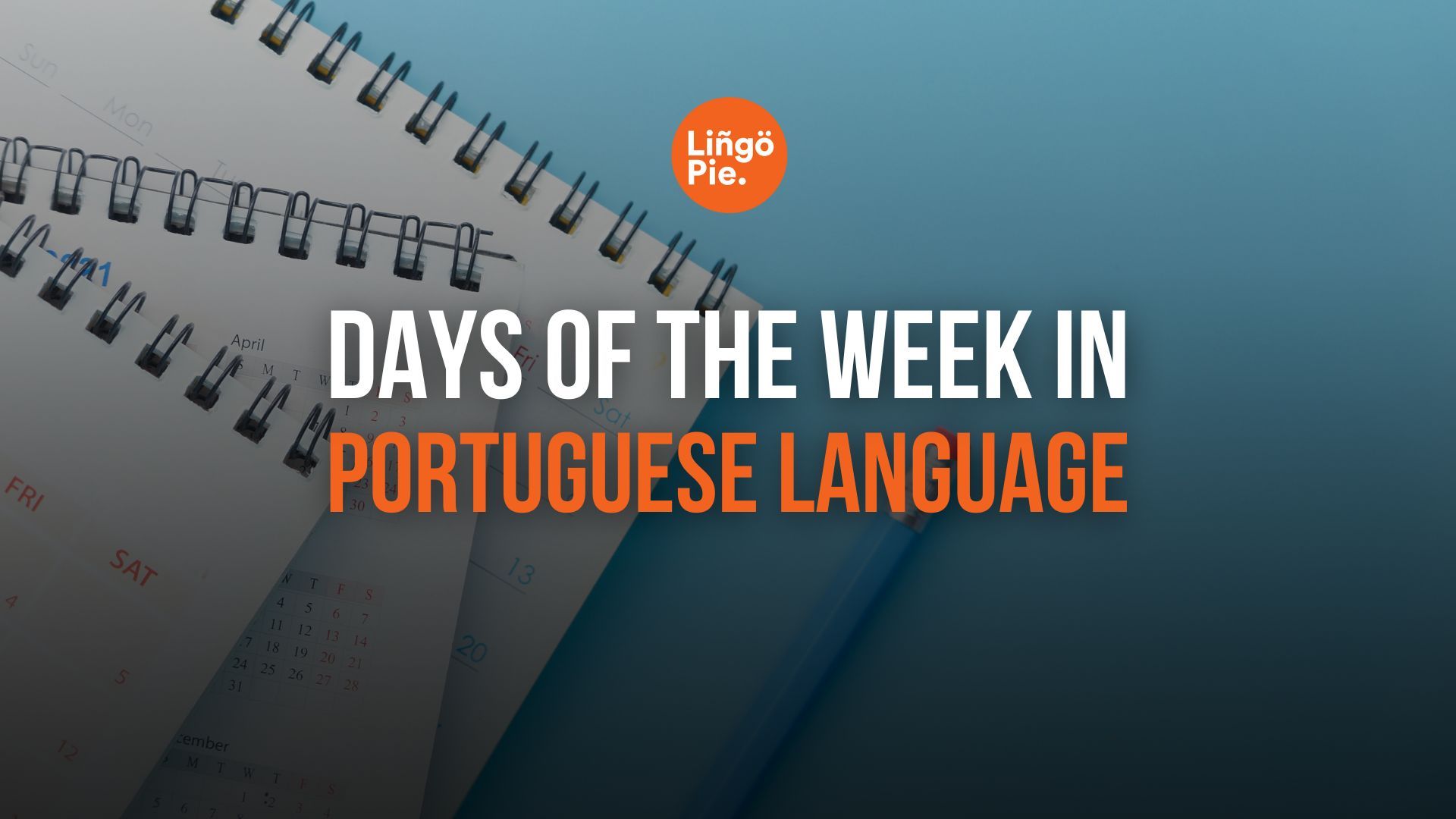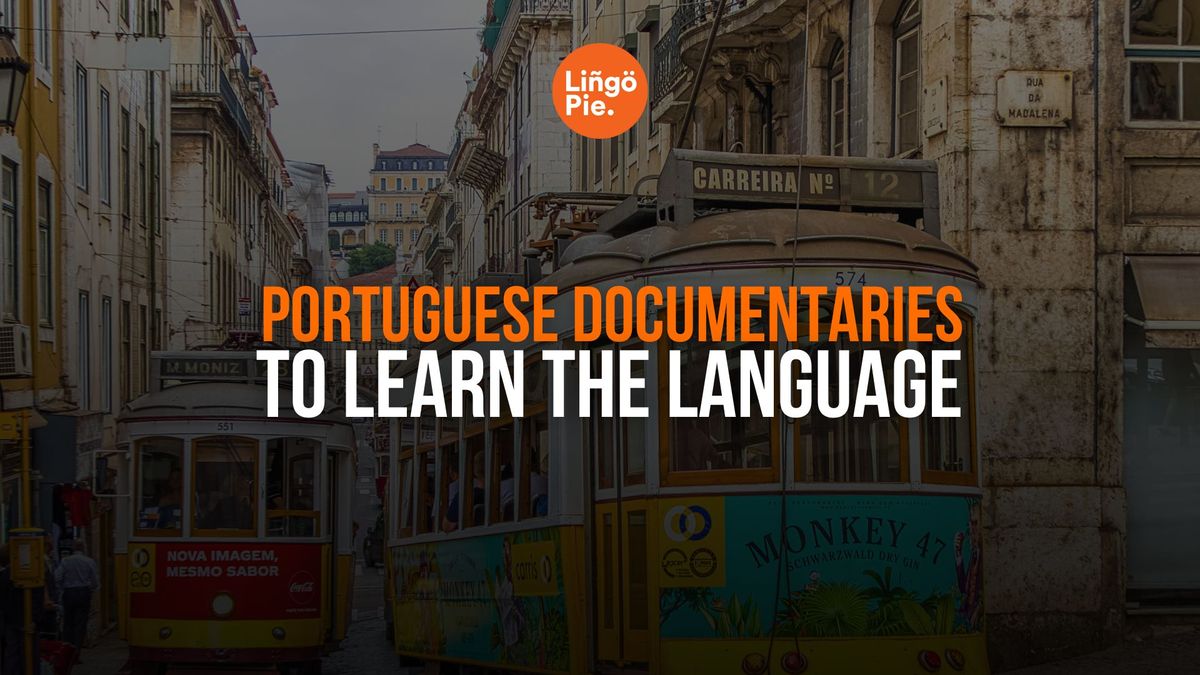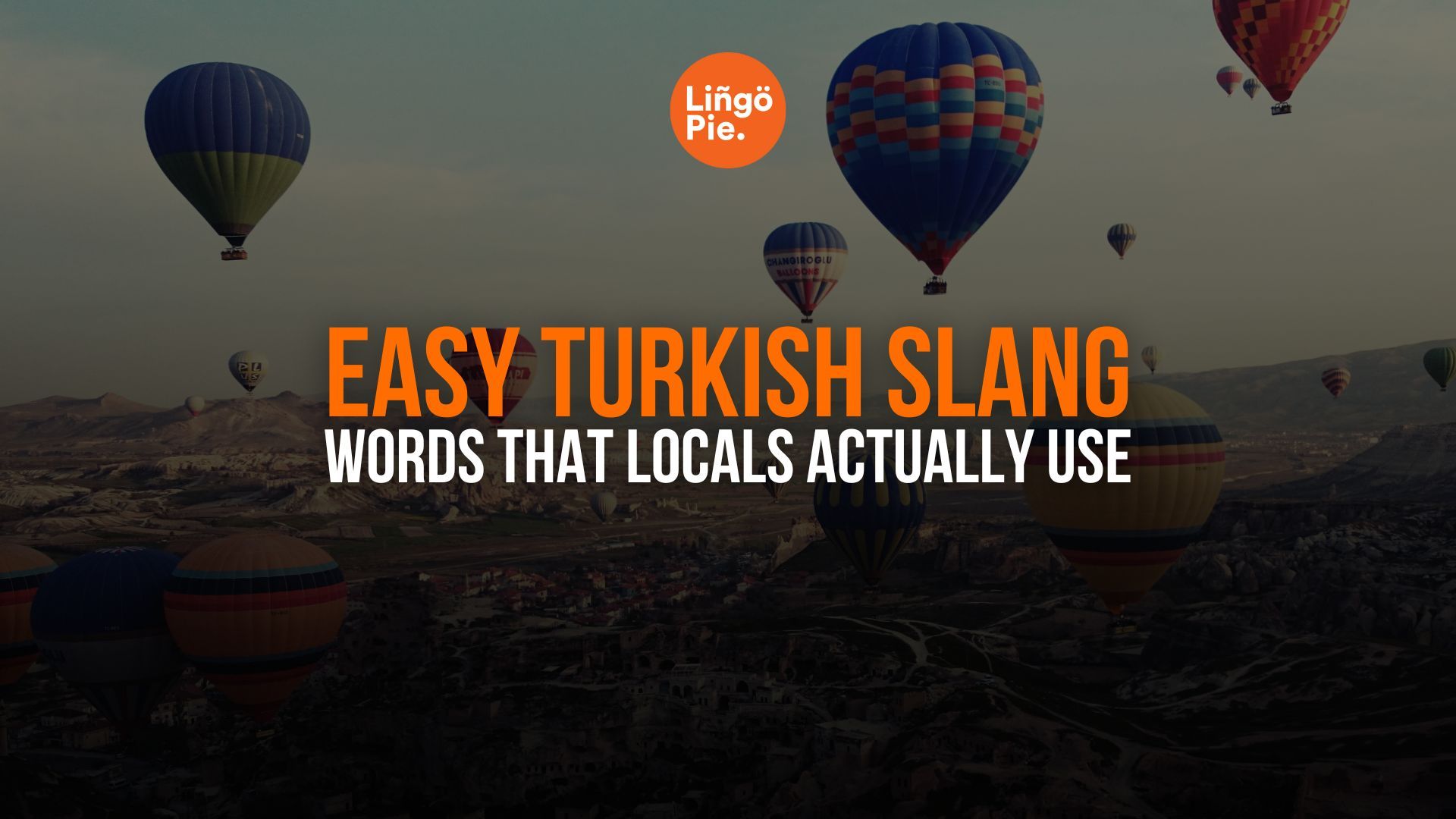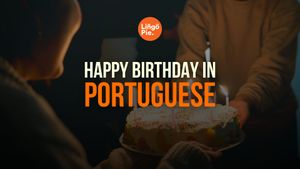Ever noticed how streaming platforms are packed with amazing international documentaries? Somehow, Portuguese films still fly under the radar. That's about to change. Portuguese documentaries are hidden gems that do double duty - they're great films and perfect tools for learning one of the world's most beautiful languages.
Want to chat with locals in Lisbon? Need help explaining in Brazilian Portuguese? Portuguese documentaries can seriously save you! In this post, let's explore six remarkable documentaries that will boost your Portuguese skills.
- How To Talk About Video Games In Portuguese [Guide]
- 7 Best Portuguese Reality TV Shows On Netflix Worth Watching
- 56+ Easy Portuguese Greetings For Total Beginners

Why Learn Portuguese Through Documentaries
Unlike scripted TV shows or theatrical movies, documentaries capture authentic speech patterns, regional accents, slang words, and everyday expressions used by native speakers. You'll hear Portuguese as it's actually spoken - with natural pauses, different speaking speeds, and various dialects from Brazil to Portugal.
Here's why documentaries are must-use resources:
- They provide visual context that helps you understand new words and phrases - when someone talks about fishing in the Amazon, you're actually seeing it happen
- Most documentaries feature multiple speakers, so you'll get used to different voices and accents
- You'll pick up specialized vocabulary in context, whether it's about cooking, history, nature, or social issues
- Documentary subjects often repeat key ideas, giving you natural repetition that helps with retention
Now, here's the thing - not all Portuguese documentaries are beginner-friendly. Some use complex technical language or feature rapid regional dialects that might overwhelm new learners. That's why we've carefully selected these six documentaries available on Lingopie. Each one strikes the right balance between engaging content and accessible language, making them perfect for language learners at different levels.
Best Portuguese Documentaries
Survivors

"Survivors" is a powerful Brazilian documentary that puts human faces to the LGBTQ+ experience in Brazil. Through 14 intimate interviews, it weaves together personal stories of triumph, struggle, and everyday life. What makes this documentary special is how it moves beyond statistics and headlines to show real people sharing their authentic experiences.
From a language-learning perspective, this documentary is a great resource for understanding contemporary Brazilian Portuguese. You'll pick up modern vocabulary around identity, relationships, and social issues that you won't find in textbooks. The interviewees use natural, conversational Brazilian Portuguese, including common slang and everyday expressions.
The Brumadinho Tragedy: Mud and Crime in Brazil

On January 25, 2019, a mining dam collapsed in Brumadinho, releasing a devastating flood of toxic mud that killed 270 people and destroyed countless homes. The documentary digs deep into what went wrong, exposing corporate negligence and the human cost of environmental destruction.
Here, you'll learn terms related to environmentalism, mining, and corporate responsibility. The documentary also features both emotional interviews with locals (great for picking up colloquial expressions and regional accents from Minas Gerais) and formal explanations from experts.
Dominated City

This Portuguese documentary takes you through the shocking events of August 2021, when a heavily armed gang attempted to steal R$400 million through a series of coordinated bank robberies. Through security footage, witness accounts, and expert analysis, it shows how the criminals used military-grade weapons, took hostages, and planted bombs throughout the city - all while keeping viewers glued to their screens with its real-life thriller pacing.
This documentary is perfect for Portuguese learners who want to understand how Brazilians talk about crime, law enforcement, and urban life. While watching, you'll naturally pick up police and security terminology, street slang used in news reporting, and common phrases from shocked residents.
Iemanja

Every February 2nd, thousands gather at Paciência beach in Salvador, Bahia, to honor Iemanjá, the African-Brazilian goddess of the sea. The documentary captures the beauty and energy of this spiritual festival, where believers from Candomblé traditions and curious onlookers come together to offer flowers, perfumes, and gifts to the goddess.
Since the documentary is set in Bahia, you'll get excellent exposure to the distinct Bahian accent and regional expressions that you won't find in standard Portuguese lessons. While watching, you'll definitely learn terms specific to Candomblé traditions, Afro-Brazilian religious practices, and festival celebrations.
Jongo

"Jongo" takes viewers on a rhythmic journey through one of Brazil's most important cultural traditions. This heartfelt documentary spotlights Dona Tó, a respected jongueira master, while exploring the rich history of jongo - an African dance and musical tradition brought to Brazil by Bantu slaves.
I personally loved watching this 23-minute Portuguese documentary because you'll be exposed to cultural and musical vocabulary. It's like you'll constantly hear terms related to music, dance, and African cultural heritage...all those terms that you won't find in typical language courses!
Creatour.pt

The documentary follows local artisans, community leaders, and innovative tourism projects that are breathing new life into traditional Portuguese towns. Instead of the usual tourist spots in Lisbon or Porto, you'll discover authentic experiences like pottery workshops in ancient villages and traditional cooking classes in family homes.
This documentary is particularly valuable for Portuguese learners because it features European Portuguese - something that's harder to find compared to Brazilian content. You can expect to learn practical travel vocabulary, traditional craft terminology, and the everyday Portuguese used in rural communities.
Plus, since many scenes involve explaining traditional practices to visitors, the speakers often use clear, descriptive language that's perfect for learners to follow along.
Essential Portuguese Documentary Words
Before diving into these documentaries, learning some key Portuguese words will make your viewing experience much more rewarding. These terms pop up frequently in documentaries and understanding them will help you follow the narrative better.
| Portuguese Word | English Meaning |
|---|---|
| documentário | documentary |
| entrevista | interview |
| narrador/narradora | narrator |
| história | story |
| depoimento | testimony |
| cena | scene |
| gravação | recording |
| imagens | footage |
| diretor/diretora | director |
| arquivo | archive |
| realidade | reality |
| testemunha | witness |
| filmagem | filming |
| sociedade | society |
| verdade | truth |
| memória | memory |
| vida | life |
| pessoa/pessoas | person/people |
| natureza | nature |
| cultura | culture |
Ready to expand your Portuguese vocabulary beyond these basics? Lingopie's interactive features let you click on any word while watching to see its meaning and add it to your personal vocabulary list. You can also practice these words with built-in flashcards and exercises while you watch. It's a great way to build your Portuguese vocabulary naturally through real-world content.

Which Documentary Are You Watching Next?
These six Portuguese documentaries open windows into different worlds while being excellent tools for language learning. From the spiritual celebrations in "Iemanjá" to the environmental wake-up call in "Brumadinho," each one offers unique insights into Portuguese language and culture.
Ready to start watching? All these documentaries are available on Lingopie with interactive learning features to help you understand every word. Pick one that interests you and dive in - it's a lot more engaging than your typical language lesson!
Frequently Asked Questions About Portuguese Documentaries
Are Portuguese documentaries good for complete beginners?
Yes, documentaries can work well for beginners, especially when using Lingopie's learning features. Documentaries often have clearer narration and slower speech compared to movies. Plus, the visual context helps you understand what's being discussed even if you don't catch every word.
What's the difference between Brazilian and European Portuguese in documentaries?
Brazilian and European Portuguese have different accents, vocabulary, and expressions. Brazilian documentaries typically use softer pronunciation and more informal language, while European Portuguese documentaries feature distinct consonant sounds and sometimes more formal speech patterns.
Can I watch these documentaries with English subtitles?
Yes, these documentaries on Lingopie come with both English and Portuguese subtitles. You can start with English subtitles and gradually switch to Portuguese ones as you become more comfortable with the language.
How long should I watch Portuguese documentaries to improve my language skills?
Consistency matters more than length. Try watching 15-30 minutes daily rather than several hours once a week. This regular exposure helps your brain process the language naturally and builds long-term retention.
Which documentary is best for learning everyday Portuguese vocabulary?
"Survivors" and "Dominated City" feature the most conversational language and everyday vocabulary. They include natural dialogues and interviews with regular people, making them excellent resources for learning common expressions and modern Brazilian Portuguese.
Should I take notes while watching Portuguese documentaries?
While it's not mandatory, jotting down new words or phrases can boost your learning. Lingopie lets you save words with a simple click, but keeping a small notebook handy for interesting expressions or cultural notes can enhance your learning experience. Just don't get so caught up in note-taking that you miss the flow of the documentary.
Can documentaries help me learn Portuguese slang and idioms?
Absolutely! Documentaries featuring interviews with local people, like "Jongo" and "Iemanjá," are excellent sources for learning authentic slang and regional expressions. You'll hear how real Portuguese speakers communicate in their daily lives, including colloquialisms that you won't find in language textbooks.









![5 Best Portuguese Translator Apps For Learners [REVIEWED]](/blog/content/images/size/w300/2026/01/Best-Portuguese-Translation-Apps.jpg)
